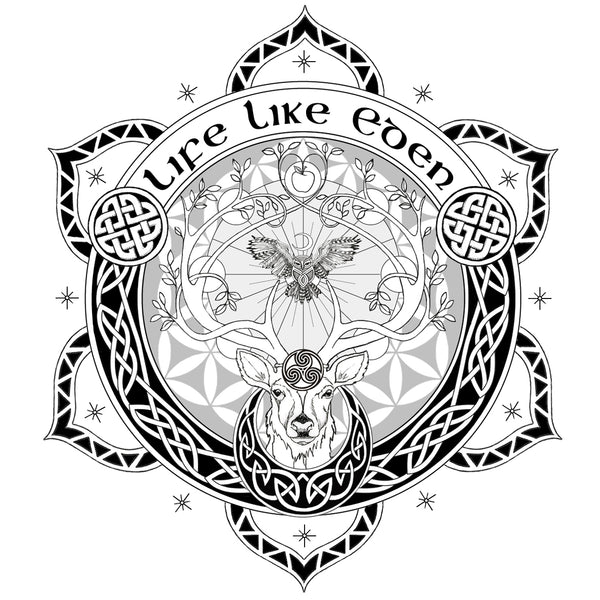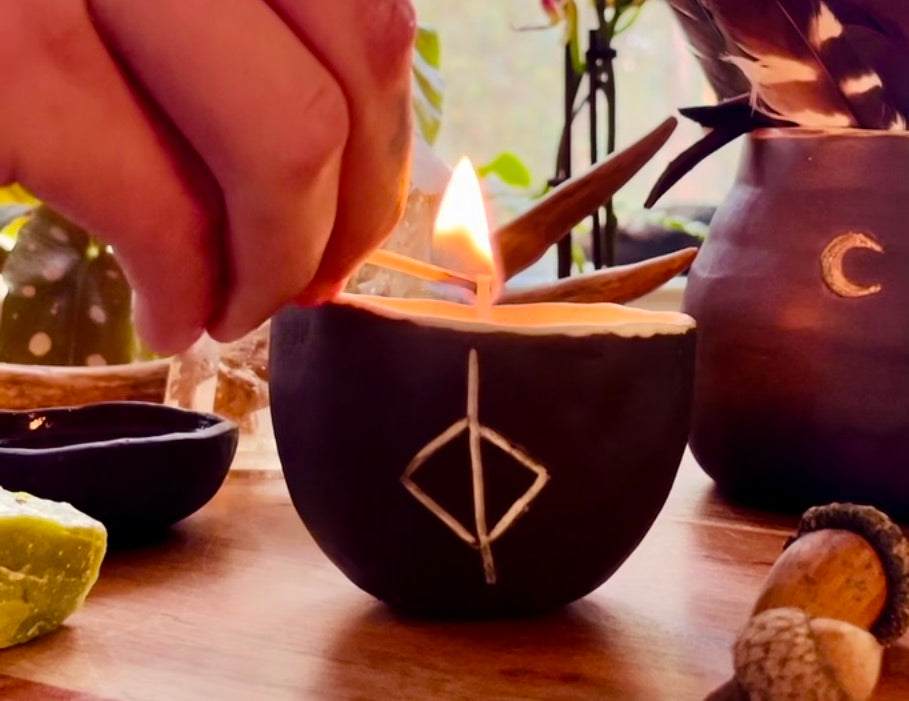Part 1: The Importance of Rituals
Introduction
Rituals have been a part of human culture for millennia, serving as powerful tools for connecting with the divine, marking significant events, and creating a sense of order in our lives. In this series, we’ll explore the mystical and scientific importance of rituals, and how they can enhance our daily lives. I will share how my ritual items came to be from a personal design need, illustrating their significance in my own practice and how they can benefit you.
Mystical Significance of Rituals
Rituals hold a deep mystical significance, providing a way to connect with the spiritual realm and the energies of the universe. Throughout history, different cultures have used rituals for various purposes, such as honoring the gods, seeking protection, and manifesting desires. These practices create a sense of connection to something greater than ourselves, offering comfort and guidance.
Above: One of my handmade carved ceramic candles, designed for manifestation rituals, bringing ancient symbols into modern practices.
My own practice has been deeply influenced by the goddess culture researched by Marija Gimbutas. Her work unveiled the profound ways in which rituals were integrated into the daily lives of ancient societies, particularly those that honored the divine feminine. These societies forged a deep connection with nature and the cosmos through their rituals, celebrating the cycles of life, death, and rebirth. This profound connection to the goddess culture has inspired my designs, aiming to bring that same sense of sacredness and harmony into modern practices.
Scientific Perspective on Rituals
From a scientific perspective, rituals play a crucial role in our psychological well-being. Studies have shown that rituals can reduce anxiety, provide a sense of control, and enhance social bonds. The repetitive actions involved in rituals can trigger the brain’s reward system, promoting feelings of calm and focus. Whether it’s a simple daily routine or a complex ceremonial practice, rituals help structure our lives and create a sense of stability.
Common examples of rituals include having a cup of coffee or tea in the morning, which many people perform almost automatically. This simple act can set a positive tone for the day, providing a moment of mindfulness and grounding. Other examples might include lighting a candle at the end of the day to signify a transition from work to relaxation, or even the ritual of reading a bedtime story to children. These everyday rituals, often performed without conscious thought, help anchor our lives and provide comfort.
Conclusion
Rituals are more than just spiritual practices; they are powerful tools that impact our minds and bodies. They help us connect with something greater, whether it’s the divine, the natural world, or our inner selves. In the next part of this series, we’ll dive into my personal journey of creating handmade ritual pieces and how they can enhance your own practices. Stay tuned!

